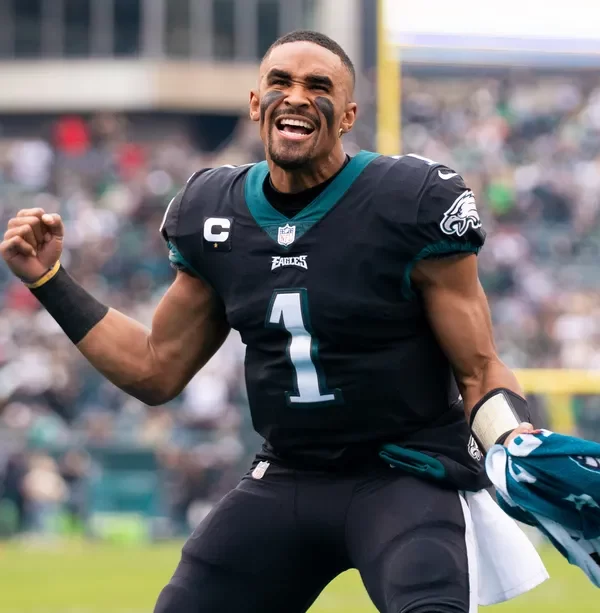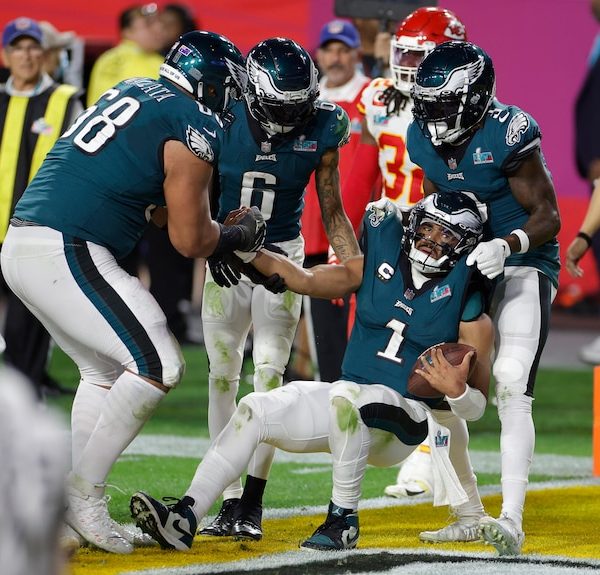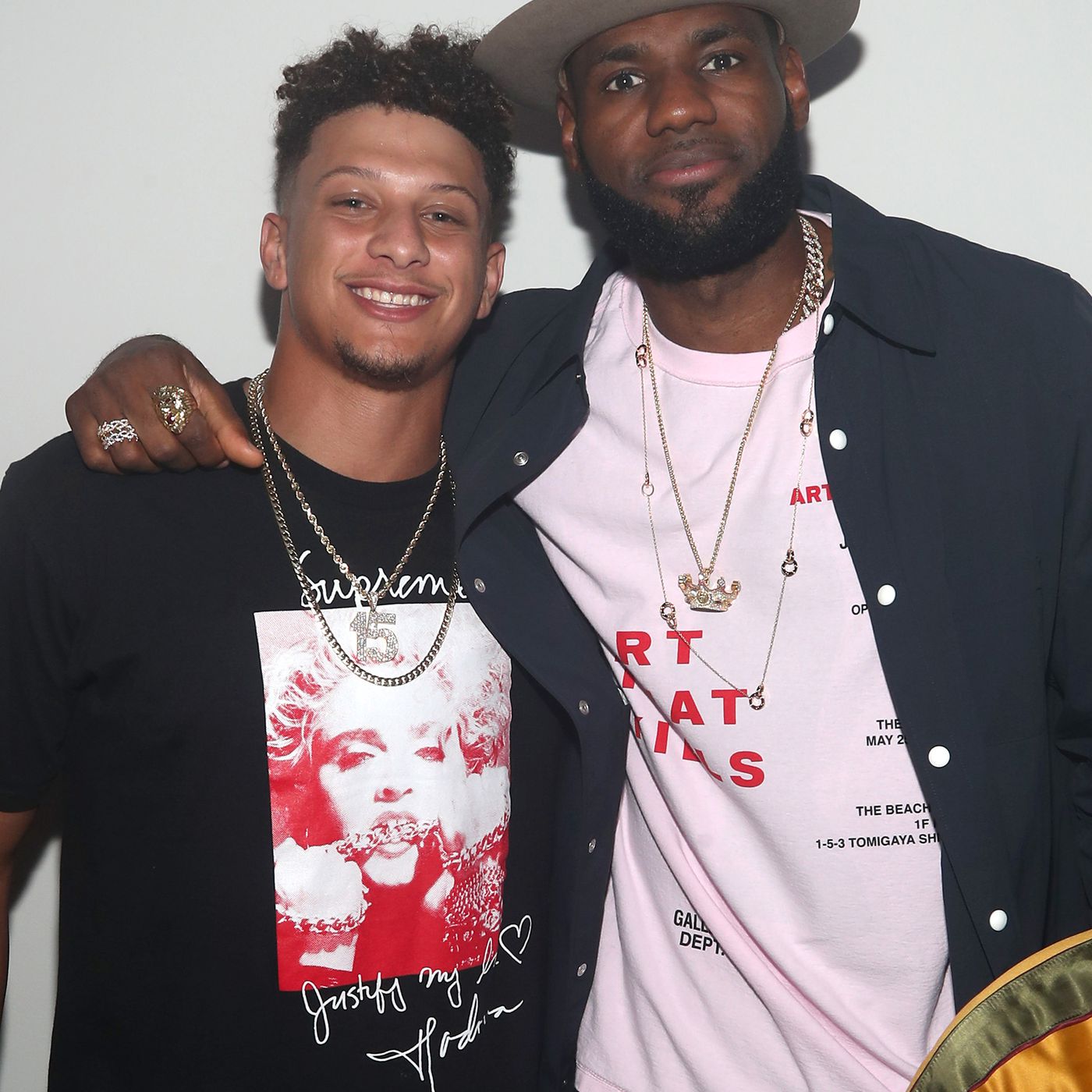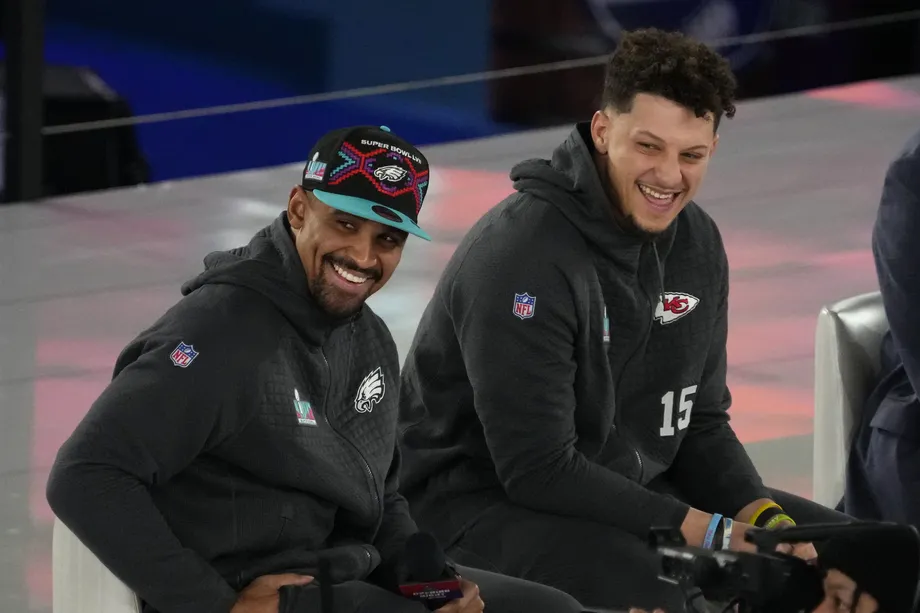
Two Black quarterbacks will play in the Super Bowl for the first time in history. Jalen Hurts, the quarterback for the Philadelphia Eagles, and Patrick Mahomes, Kansas City Chiefs quarterback, who are both Black, will face off this Sunday to make history.
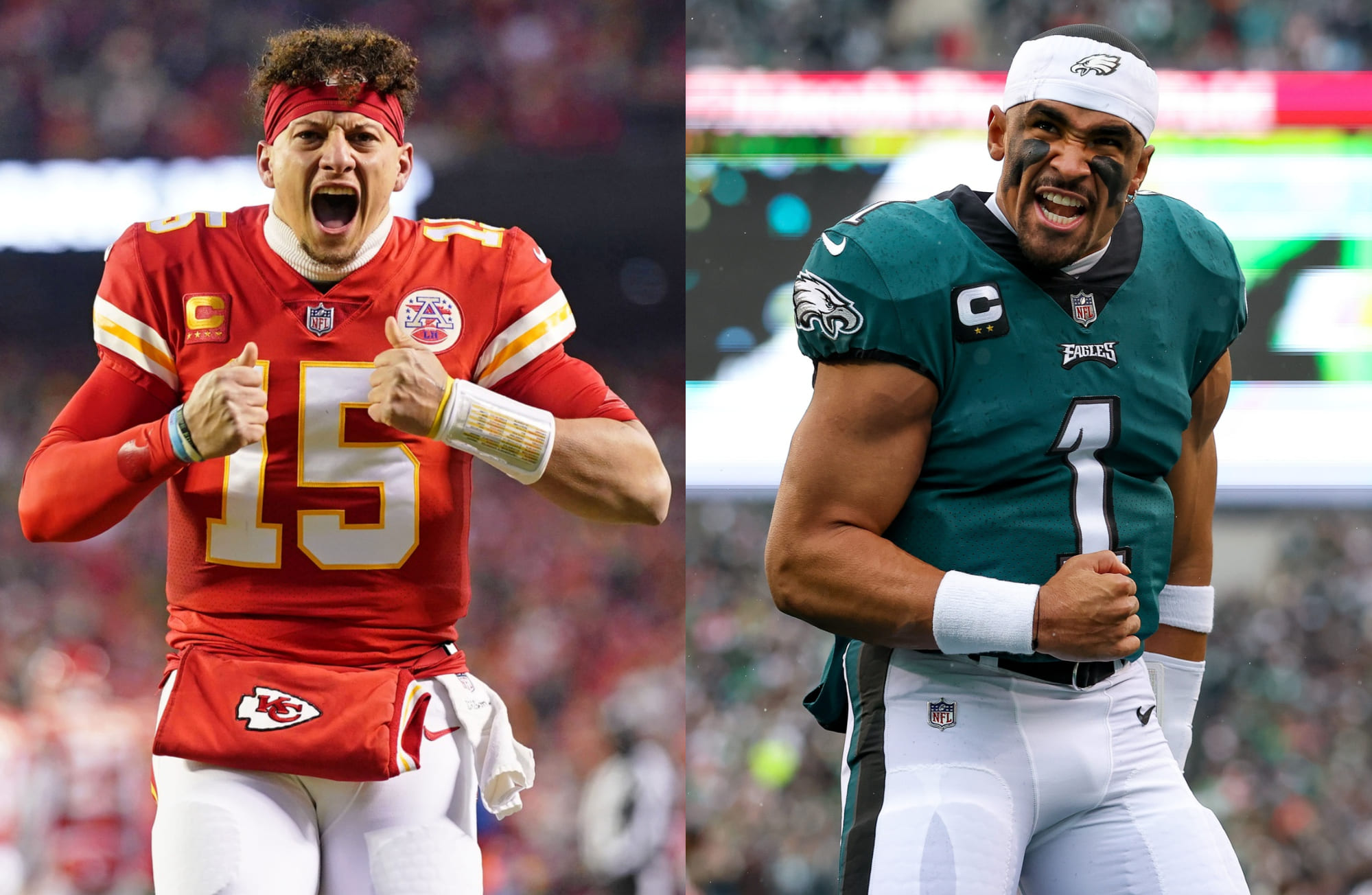
The NFL season began with a record 11 Black starting quarterbacks. It ends for the first time with two Black starting quarterbacks in the Super Bowl. This Sunday’s meeting, though, between the Chiefs’ Patrick Mahomes and Eagles’ Jalen Hurts wasn’t just a twist of fate.
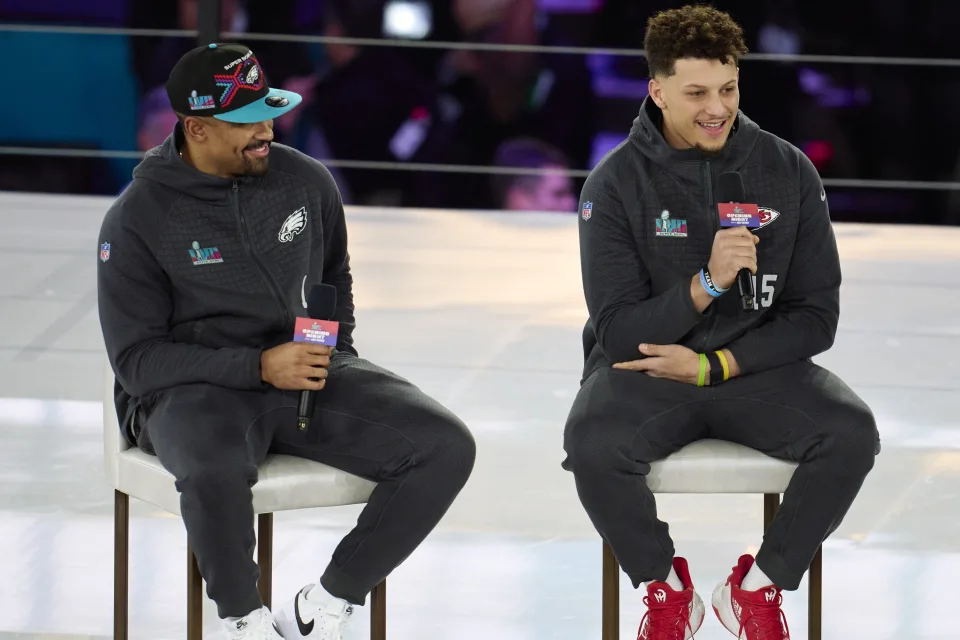
For the first time in NFL history, two Black quarterbacks will start in the Super Bowl.
Let me say that again.
When the teams of Patrick Mahomes and Jalen Hurts meet on Feb. 12, it will be the first time in NFL HISTORY two Black quarterbacks are starting in the same Super Bowl — a game that was first played in 1967. For those who need a count, that’s 56 times the sport’s most important game was played without two Black players at its most prominent position.
That it took so long was by design, a reason to both lament missed opportunities and celebrate the moment finally arriving. Make no mistake, this is a big deal.
This year’s Super Bowl will feature two Black starting quarterbacks for the first time ever. pic.twitter.com/DcI2R3W3A9
— Front Office Sports (@FOS) January 30, 2023
For years, racism and prejudice was at the root of Black football players not receiving opportunities to play quarterback. The position was thought to require a level of intelligence that Black people didn’t possess. On top of that silly notion, the issue of white owners allowing Black men to be the faces and de facto leaders of their franchises was another barrier.
Progress has been slow, and those sentiments are only recently beginning to fade. It was just six years ago that another Black quarterback to start in a Super Bowl, Colin Kaepernick, was banished from the league for protesting police brutality against Black people. A year later, the New York Giants started a Black quarterback for the first time in franchise history, becoming the last NFL team to do so. (That player was 2022 PFWA Comeback Player of the Year Geno Smith, who the league had all but written off as a starting quarterback.) A few months after that, so-called draft analysts tried to convince the public that a future MVP-winning quarterback named Lamar Jackson was better suited as a wide receiver.
We aren’t that far removed from the same type of thinking that once made Black quarterbacks rare to see. So, I repeat, Super Bowl LVII between the Kansas City Chiefs and Philadelphia Eagles and the quarterbacks who lead them is a big deal.
It shows that if NFL decision-makers aren’t actively being anti-racist, some are at least willing to suppress their prejudices to win football games. From the heart or not, the trickle-down effect can help remove the biases of fans and decision-makers in other areas and levels of the sport. Which is necessary, because there’s so much more progress to be made. Just last year, USA TODAYand The Washington Post rolled out projects on the NFL’s continuing poor track record hiring Black coaches.
That’s why a Super Bowl with two Black starting quarterbacks is so important, no matter how many “race doesn’t matter” warriors try to tell you otherwise. Too many people have and continue to actively work against moments like this to allow that type of thinking to exist.
“I’ve got such a smile on my face right now, but I’ve got water in my eyes, too,” Doug Williams, the first Black quarterback to win a Super Bowl, told Andscape’s Jason Reid. “I’m talking, but I don’t think I can even explain what this means. We have come such a long way. It has been so hard, so many barriers, but we did it. Two Black quarterbacks in the Super Bowl!”
Like Williams’ triumph 35 years ago, Mahomes and Hurts have the potential to open even more doors. They have already. Mahomes, who became the third Black starting quarterback to win a Super Bowl in 2020, is setting a new standard for what an elite quarterback looks like. Hurts employs a Black woman agent, Nicole Lynn, who is now the first Black woman to represent a quarterback of any race in the Super Bowl.
Nicole Lynn of @KlutchSports will become the first Black female agent to represent a quarterback in the #SuperBowl
Lynn represents @Eagles quarterback Jalen Hurts.
(via @diverserep, @AgentNicoleLynn) pic.twitter.com/Mc5qmhJV1Q
— Sports Business Journal (@SBJ) January 30, 2023
So, yes, we should celebrate this one. It means a great deal to a lot of people who thought they’d never see the moment. It also means a lot for a generation of people to come.
Source : USAToday
